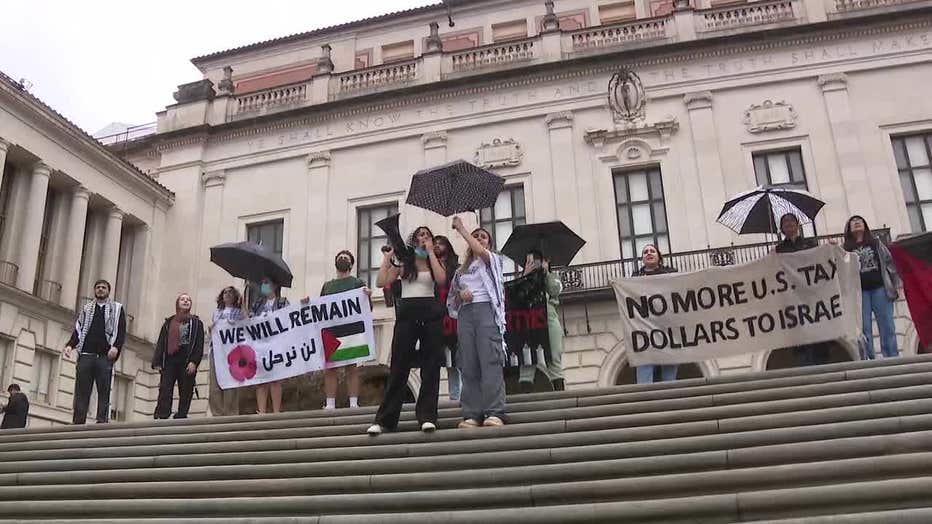Gov. Abbott orders Texas universities to revise free speech policies to combat antisemitism

TX colleges ordered to revise free speech policies
This request for universities to revamp their free speech policies singled out pro-Palestinian groups. And while it aims to address antisemitism, it does not aim to address Islamophobia.
DALLAS - Governor Greg Abbott is ordering Texas universities to revise their free speech policies in an effort to curb antisemitism.
Antisemitic incidents have been on the rise since the beginning of the current conflict between the Hamas terrorist group and Israel.
This request for universities to revamp their free speech policies singled out pro-Palestinian groups. And while it aims to address antisemitism, it does not aim to address Islamophobia.
Since the beginning of the latest war between Israel and Hamas, college campuses nationwide have been hosts to protests, like a pro-Palestinian rally at UT Austin in November.

And while there have been many peaceful protests, antisemitic incidents on campuses nationwide have also reportedly been on the rise.
The issue was thrust into the national spotlight last year when Ivy League presidents testified before Congress. Harvard and the University of Pennsylvania’s presidents later resigned.
Gov. Abbott on Wednesday ordered Texas universities to revise their free speech policies to combat antisemitism, including a command to "establish appropriate punishments, including expulsion from the institution." The order specifically named two pro-Palestine groups.
Featured
Dallas councilwoman gets overwhelming support from community, Gov. Abbott after antisemitic graffiti
The story about what happened to Mendelsohn's home has now received coverage around the world, and it also caught the attention of Gov. Greg Abbott, who made a personal phone call to her.
Tom Leatherbury is director of the First Amendment Clinic at SMU. While we wait to see what the policies actually look like, he says any policy would need to clear certain legal standards to hold up to challenges.
"If it is viewpoint-based, and there are some elements of this executive order that would make it viewpoint-based, you have to ask yourself whether it would pass strict scrutiny, the constitutional test for content-based restrictions on speech," he said.
The Texas Chapter of the Council on American Islamic Relations condemned the governor's order, writing, "Advocating for Palestinian rights and criticizing the actions of the Israeli government are not inherently antisemitic. Students must be allowed to express their opinions and engage in robust debates on complex geopolitical issues without fear of reprisal or censorship."
"The broader the policy, the more protections in the policy, the less it's subject to challenge because it looks less like a particular viewpoint is being punished," Leatherbury said.
FOX 4 reached out to some North Texas universities. The UNT System says it will review its policy to follow the law, including the governor's order.
The executive order gives the universities 90 days. Then, they are to report back to the governor on changes as well as evidence those changes are being enforced.


